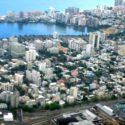Although its future is unresolved, Puerto Rico is more integrated into the union already than any other territory has been when becoming a state. Because Congress has for decades ignored its responsibility to manage the transition of Puerto Rico to either statehood or sovereign nationhood, Puerto Rico’s political economy is under stress. This makes defining the terms for admission to the union — or for nationhood — more complicated than it needed to be.
This predicament reflects the fact the separating citizenship from civil rights under the Constitution but demanding allegiance and loyalty is a paradoxical if not schizophrenic federal territorial policy. It resulted in a paradoxical if not schizophrenic response by the so-called “commonwealth” faction promoting a “nation-within-a-nation” status that does not exist.
Faced with less than equal citizenship, the autonomy faction accepted the idea that Puerto Ricans would have U.S. citizenship, but would be equal only in the states. At the same time, they decided that the people living in Puerto Rico would enjoy a set of privileges available only in Puerto Rico. Their idea for Puerto Rico would include some but not all features of both U.S. citizenship and a new Puerto Rican nationality, as well as some features of both statehood and independence.
If the 1922 ruling of the U.S. Supreme Court had treated Puerto Rico the same as Alaska and Hawaii, Puerto Rico would be a state today. Instead, this case (Balzac vs. Puerto Rico) allowed Congress to govern under a system of ideas dating back to 1901, when Puerto Rico didn’t have citizenship. This allowed Congress to act outside the Constitution.
That meant even though statehood was not assured, full independence or even real national sovereignty had become unacceptable if it meant loss of citizenship. Since neither full statehood nor real nationhood seemed possible, the “commonwealth” faction combined features of both and promised the people of Puerto Rico that they could have a hybrid status that does not exist.
At some point the commonwealth faction changed from being a response to the denial of statehood or independence to an established political party that opposed both. It soon came to be a party that not only defended its platform for achieving autonomy, which it called “commonwealth,” and ever since that party has been against both statehood and independence.
The party told its followers that “commonwealth” would be better than statehood or independence. Thus, commonwealth supposedly would evolve from the 1952 agreement under territorial status into a nation-to-nation “compact” that would be a form of “free association.” Unlike other free association compacts recognized by the United States, the commonwealth party’s imaginary agreement would include separate national sovereignty in Puerto Rico, but U.S. citizenship in Puerto Rico and full rights in the states.
The “commonwealth” party leaders claim that the U.S. owes free association with citizenship to Puerto Rico, and that it would be a betrayal to suggest otherwise. Whether the commonwealth party leadership is trying to keep false hope alive so they can hold on to political power, or sincere in their belief in a failed promise, the result is the same.
This post was originally written in English and may be being auto-translated by Google.








No responses yet